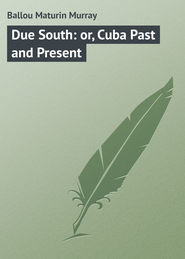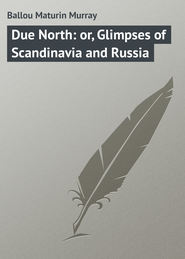По всем вопросам обращайтесь на: info@litportal.ru
(©) 2003-2024.
✖
Pearls of Thought
Настройки чтения
Размер шрифта
Высота строк
Поля
Bargain.– What is the disposition which makes men rejoice in good bargains? There are few people who will not be benefited by pondering over the morals of shopping. —Beecher.
A dear bargain is always disagreeable, particularly as it is a reflection upon the buyer's judgment. —Pliny.
Bashfulness.– Bashfulness may sometimes exclude pleasure, but seldom opens any avenue to sorrow or remorse. —Johnson.
Bashfulness is a great hindrance to a man, both in uttering his sentiments and in understanding what is proposed to him; 'tis therefore good to press forward with discretion, both in discourse and company of the better sort. —Bacon.
Beauty.– The beautiful is always severe. —Ségur.
For converse among men, beautiful persons have less need of the mind's commending qualities. Beauty in itself is such a silent orator, that it is ever pleading for respect and liking, and, by the eyes of others is ever sending to their hearts for love. Yet even this hath this inconvenience in it – that it makes its possessor neglect the furnishing of the mind with nobleness. Nay, it oftentimes is a cause that the mind is ill. —Feltham.
Man has still more desire for beauty than knowledge of it; hence the caprices of the world. —X. Doudan.
No better cosmetics than a severe temperance and purity, modesty and humility, a gracious temper and calmness of spirit; no true beauty without the signature of these graces in the very countenance. —John Ray.
An appearance of delicacy, and even of fragility, is almost essential to beauty. —Burke.
I am of opinion that there is nothing so beautiful but that there is something still more beautiful, of which this is the mere image and expression, – a something which can neither be perceived by the eyes, the ears, nor any of the senses; we comprehend it merely in the imagination. —Cicero.
A lovely girl is above all rank. —Charles Buxton.
There is more or less of pathos in all true beauty. The delight it awakens has an indefinable, and, as it were, luxurious sadness, which is perhaps one element of its might. —Tuckerman.
Beauty is the first present nature gives to women and the first it takes away. —Méré.
In ourselves, rather than in material nature, lie the true source and life of the beautiful. The human soul is the sun which diffuses light on every side, investing creation with its lovely hues, and calling forth the poetic element that lies hidden in every existing thing. —Mazzini.
Beauty is God's handwriting, a wayside sacrament. —Milton.
Beauty deceives women in making them establish on an ephemeral power the pretensions of a whole life. —Bignicout.
If there is a fruit that can be eaten raw, it is beauty. —Alphonse Karr.
Those critics who, in modern times, have the most thoughtfully analyzed the laws of æsthetic beauty, concur in maintaining that the real truthfulness of all works of imagination – sculpture, painting, written fiction – is so purely in the imagination, that the artist never seeks to represent the positive truth, but the idealized image of a truth. —Bulwer-Lytton.
An outward gift which is seldom despised, except by those to whom it has been refused. —Gibbon.
It is impossible that beauty should ever distinctly apprehend itself. —Goethe.
Bed.– The bed is a bundle of paradoxes: we go to it with reluctance, yet we quit it with regret; we make up our minds every night to leave it early, but we make up our bodies every morning to keep it late. —Colton.
What a delightful thing rest is! The bed has become a place of luxury to me! I would not exchange it for all the thrones in the world. —Napoleon.
Beggars.– He is never out of the fashion, or limpeth awkwardly behind it. He is not required to put on court mourning. He weareth all colors, fearing none. His costume hath undergone less change than the Quaker's. He is the only man in the universe who is not obliged to study appearances. —Lamb.
Aspiring beggary is wretchedness itself. —Goldsmith.
Benevolence.– There cannot be a more glorious object in creation than a human being, replete with benevolence, meditating in what manner he might render himself most acceptable to his Creator by doing most good to his creatures. —Fielding.
Genuine benevolence is not stationary but peripatetic. It goeth about doing good. —Nevins.
It is an argument of a candid, ingenuous mind to delight in the good name and commendations of others; to pass by their defects and take notice of their virtues; and to speak or hear willingly of the latter; for in this indeed you may be little less guilty than the evil speaker, in taking pleasure in evil, though you speak it not. —Leighton.
The root of all benevolent actions is filial piety and fraternal love. —Confucius.
True benevolence is to love all men. Recompense injury with justice, and kindness with kindness. —Confucius.
It is in contemplating man at a distance that we become benevolent. —Bulwer-Lytton.
Bible.– As those wines which flow from the first treading of the grapes are sweeter and better than those forced out by the press, which gives them the roughness of the husk and the stone, so are those doctrines best and sweetest which flow from a gentle crush of the Scriptures and are not wrung into controversies and commonplaces. —Bacon.
They who are not induced to believe and live as they ought by those discoveries which God hath made in Scripture, would stand out against any evidence whatever; even that of a messenger sent express from the other world. —Atterbury.
But what is meant, after all, by uneducated, in a time when books have come into the world – come to be household furniture in every habitation of the civilized world? In the poorest cottage are books – is one book, wherein for several thousands of years the spirit of man has found light and nourishment and an interpreting response to whatever is deepest in him. —Carlyle.
A stream where alike the elephant may swim and the lamb may wade. —Gregory the Great.
All human discoveries seem to be made only for the purpose of confirming more strongly the truths come from on high, and contained in the sacred writings. —Herschel.
I am heartily glad to witness your veneration for a book which, to say nothing of its holiness or authority, contains more specimens of genius and taste than any other volume in existence. —Landor.
Bigotry.– A proud bigot, who is vain enough to think that he can deceive even God by affected zeal, and throwing the veil of holiness over vices, damns all mankind by the word of his power. —Boileau.
Persecuting bigots may be compared to those burning lenses which Lenhenhoeck and others composed from ice; by their chilling apathy they freeze the suppliant; by their fiery zeal they burn the sufferer. —Colton.
A man must be excessively stupid, as well as uncharitable, who believes there is no virtue but on his own side. —Addison.
The worst of mad men is a saint run mad. —Pope.
Biography.– As in the case of painters, who have undertaken to give us a beautiful and graceful figure, which may have some slight blemishes, we do not wish them to pass over such blemishes altogether, nor yet to mark them too prominently. The one would spoil the beauty, and the other destroy the likeness of the picture. —Plutarch.
Biographies of great, but especially of good men, are most instructive and useful as helps, guides, and incentives to others. Some of the best are almost equivalent to gospels – teaching high living, high thinking, and energetic action for their own and the world's good. —Samuel Smiles.
It is rarely well executed. They only who live with a man can write his life with any genuine exactness and discrimination; and few people, who have lived with a man, know what to remark about him. —Johnson.
History can be formed from permanent monuments and records; but lives can only be written from personal knowledge, which is growing every day less, and in a short time is lost forever. —Johnson.
Occasionally a single anecdote opens a character; biography has its comparative anatomy, and a saying or a sentiment enables the skillful hand to construct the skeleton. —Willmott.
To be ignorant of the lives of the most celebrated men of antiquity is to continue in a state of childhood all our days. —Plutarch.
Birth.– Noble in appearance, but this is mere outside; many noble born are base. —Euripides.
Blessings.– The good things of life are not to be had singly, but come to us with a mixture; like a schoolboy's holiday, with a task affixed to the tail of it. —Charles Lamb.
Blessedness consists in the accomplishment of our desires, and in our having only regular desires. —St. Augustine.
We mistake the gratuitous blessings of Heaven for the fruits of our own industry. —L'Estrange.











